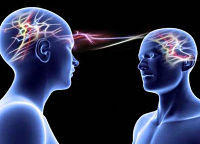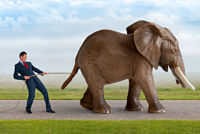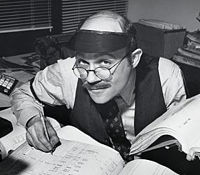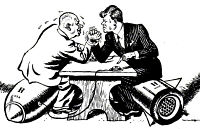Papers
Testosterone reduces functional connectivity during the ‘Reading the Mind in the Eyes’ Test. (2016)
"Our findings ... reveal a neural mechanism by which testosterone can impair emotion-recognition ability…" Peter A. Bos, a, b; Dennis Hofman, a; Erno J. Hermans, c, d; Estrella R. Montoya, a; Simon Baron-Cohen, e; Jack van Honk, a, b, f Psychoneuroendocrinology,...
Written by: Bos, P. A., Hofman, D., Hermans, E. J., Montoya, E. R., Baron-Cohen, S., & van Honk, J.
Read moreCharacter traits of effective executives: A phenomenological study of CEOs in Ghana. (2016)
"Four major themes were revealed… integrity, forward looking, emotional intelligence, and caring for others….." Remy Nyukorong, Stichting Kongregatie F.I.C. The Netherlands; and William Quisenberry, Swiss Management Center University School of...
Written by: Nyukorong, R., & Quisenberry, W.
Read moreEntitled at the top: are leaders more selfish than the rest of us? (2016)
"...generosity is often strategically demonstrated to attain status (and) may decrease once status-attainment goals are achieved..." APS Association for Psychological Science ‘Minds for Business’ website article. Based on the peer-reviewed paper ‘To...
Written by: Hays, Nicholas A.; Blader, Steven L.
Read moreWhen ethical leader behavior breaks bad: how ethical leader behavior can turn abusive via ego depletion and moral licensing. (2016)
"...companies could consider formally requiring ethical behavior. "It's more difficult for people to feel they've earned credit and moral license for performing something that is mandatory." Russell E. Johnson, Ass....
Written by: Johnson, Russell E.; Lin, Szu-Han (Joanna); Ma, Jingjing
Read moreBattling hubris before crisis strikes: Suggestions for researchers and practitioners. (2016)
“… there is a strong case for changes to be considered to governance, regulation and certain aspects of organisation design and reward.” Matt Nixon - Associate, Ashridge Business School and...
Written by: Daedalus admin
Read moreExecutive over-confidence and compensation structure. (2016)
"...firms tailor compensation contracts to individual behavioral traits such as overconfidence.” Mark Humphery-Jenner, UNSW Business School, Australia; Ling Lei Lisic, George Mason University, Virgina; Vikram Nanda, Rutgers University New Jersey...
Written by: Humphery-Jenner, M., Lisic, L. L., Nanda, V., & Silveri, S. D.
Read moreCEO power and CEO hubris: a prelude to financial misreporting? (2016)
“…firms accused of financial misreporting exhibit features of strong CEO power and hubris…Governance mechanisms, especially independent boards of directors, do not seem to be effective in detecting or preventing financial...
Written by: Cormier, D., Lapointe-Antunes, P., & Magnan, M.
Read moreTaming power: ‘generative historical consciousness’. (2016)
Is the capacity for corruption inherent in the nature of power? A mechanism for taming power could be ‘Generative historical consciousness’. David. G. Winter, University of Michigan American Psychologist, Vol...
Written by: Winter, D. G.
Read moreHow does leader humility influence team performance? Exploring the mechanisms of contagion and collective promotion focus. (2016)
"Leader behavior can spread via social contagion to followers... leaders need to lead by example." Bradley P Owens, Brigham Young University; & David R. Hekman, University of Colorado Academy of...
Written by: Owens, B. P., & Hekman, D. R.
Read moreOverconfident CEOs are less socially responsible. (2016)
"Overconfident CEOs invest less in activities that impact positively on society… Female CEOs are significantly less overconfident than male CEOs." Barry Oliver The Conversation, 12 December 2016 Drawn from the...
Written by: Oliver, B., McCarthy, S. & Song, S.
Read more














